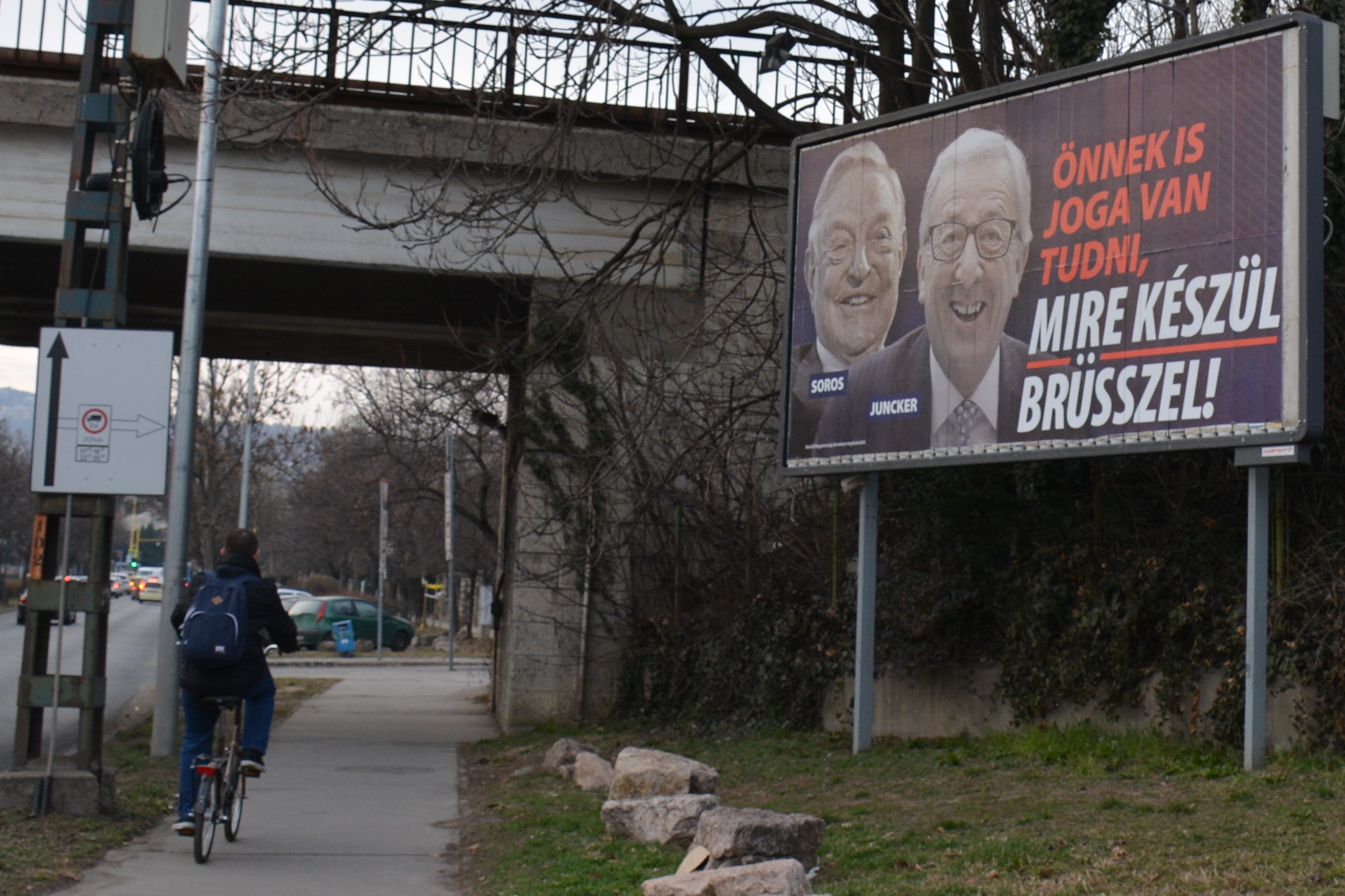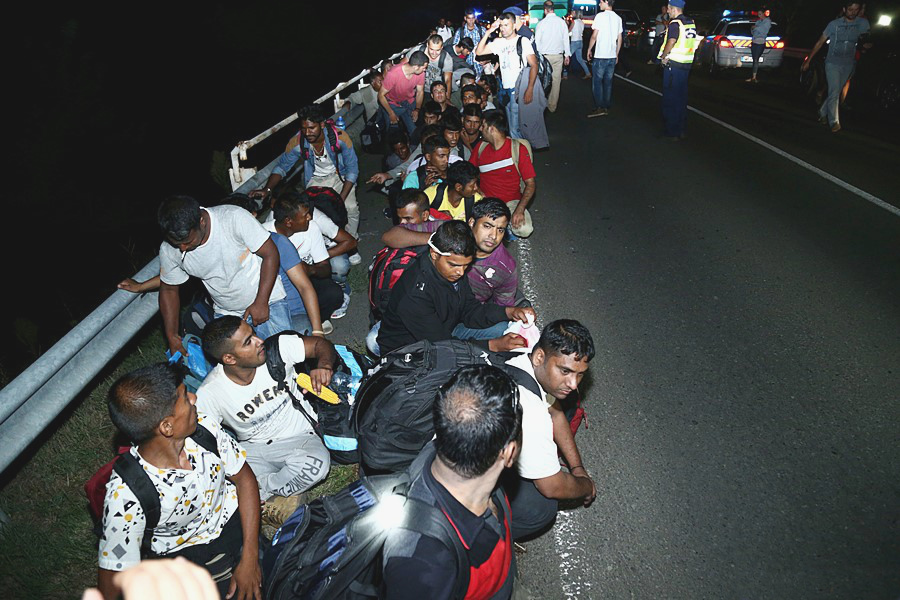Poland – “If someone from the opposition was now leading in the opinion polls, what would happen if the executive power declared a state of emergency in order to postpone the election?”, Krzysztof Szczerski, head of the Chancellery of the President of the Republic of Poland, asked on Monday after his meeting with Jarosław Gowin. Gowin is the leader of the small Porozumienie (“Agreement”) party, which is part of the PiS group in the Sejm and whose 15 votes are necessary for PiS to keep its absolute majority after last October’s parliamentary elections. On April 6, Deputy Prime Minister Gowin resigned from the government of Mateusz Morawiecki because of his disagreement with PiS on the issue of the date of May 10 for the first round of the presidential election, and more specifically with its plan to use all-postal voting because of the COVID-19 epidemic. However, Porozumienie remains part of the parliamentary majority, and Gowin has been busy ever since trying to find a compromise solution with PiS and the opposition. He proposed amending the Polish Constitution to replace the renewable five-year presidential term with a non-renewable seven-year term, applying this reform to the incumbent President Andrzej Duda, whose poll ratings put him way ahead of his rivals. This would have made it possible to defer the election by two years. In return, Duda would have been prevented from running in the next presidential contest. Jarosław Kaczyński’s party said it was ready to accept such a solution, but the parliamentary opposition was not. This was true particularly of the Civic Coalition (KO), the main opposition group constituted around the liberal Civic Platform (PO). The opposition wants the government to declare a state of natural disaster and postpone the presidential election by a year.
It must be said that the KO candidate, Małgorzata Kidawa-Błońska, is in a very difficult situation, and postponing the election by a year would allow the liberals to change their candidate. According to the poll average for the second half of April, the incumbent President Andrzej Duda, from PiS, would prevail in the first round with 58.6% of the vote. The KO candidate would come only 6th with 5.8% of the vote, behind the candidate of the liberal left Robert Biedroń (5.9%), the candidate of a coalition of nationalists and liberal-conservatives, Krzysztof Bosak (6.1%), an independent candidate presenting himself as a progressive Catholic, Szymon Hołownia (8.6%), and the candidate of the Polish Coalition, an alliance of the PSL agrarian party and the conservative “anti-system” party Kukiz’15, Władysław Kosiniak-Kamysz (9.9%). In early January, polls showed Duda with 44% of the vote in the first round, against 23% for Kidawa-Błońska, and gave him a victory in the second round by only a thin margin. At the end of March, with her poll ratings falling, Kidawa-Błońska called for a boycott of the election if the first round were to take place on May 10, but other candidates did not follow her move. She did not however withdraw her candidacy, and she has kept campaigning since then while calling for a boycott. This – in addition to her many blunders – has probably contributed a lot to the huge drop in her ratings.
An important question having an impact on the poll ratings is who intends to take part in the postal ballot on May 10. Andrzej Duda was already a popular president before the Chinese coronavirus arrived in Poland at the beginning of March, and he has clearly benefited from the effect of the crisis and from the management of the epidemic by the Morawiecki government, which is viewed rather favourably by Poles. With the liberals’ call fora boycott, it is likely that many of their electorate do not intend to cast a vote. If turnout is far below the usual level of around 50%, the elected president will certainly see his or her legitimacy questioned, in particular by the liberals, who have called for a boycott and who have influential friends in Brussels. One of them is Donald Tusk, who joined the boycott on April 28 when he announced that he would not vote on May 10.
Kaczyński’s PiS party explains its determination to go ahead with all-postal voting on May 10 by pointing to the example of Bavaria, where because of the epidemic the second round of local elections on March 29 was run entirely as a postal ballot. Another point made by PiS is that President Duda’s term is due to end on August 6, and that according to the deadlines laid down in the Polish Constitution, new elections must be held no later than on May 23 (75 days before the end of the incumbent president’s term). This will apply unless the government declares a state of natural disaster, as requested by the opposition. PiS refuses to do so, arguing that it could generate demands for compensation which could prove very costly for the state, even if this assertion is challenged by legal experts. As for Jarosław Gowin, he would be ready to accept all-postal voting, but only in August (which would also require a state of natural disaster to be declared in order to postpone the election beyond May 23), so as to give more time to organise the ballot in proper conditions.
The bill which would allow al-postal voting on May 10 is now in the Senate, and the Senate is in the hands of the opposition. The upper house will most probably send its own version of that bill back to the Sejm at the latest possible date, which is May 6. In the meantime, the government is preparing the presidential election for May 10, and the Polish Post Office is collecting lists of voters’ addresses so that they can receive their “electoral package” in their mailbox, and then return their vote in special boxes which still have to be installed all over Poland. However, it is going to be hard to meet the deadline of May 10, or even May 17 as the new law would allow (so that the second round, if necessary, can be held on May 23), and without the votes of Gowin’s party PiS will not have the necessary majority at the last reading of the bill in the Sejm to enact it into law and enable an all-postal vote.Then Poland will have to vote in the traditional way on May 10 unless the government declares a state of natural disaster. So the most likely outcome of the current spat is that a state of natural disaster will be declared and a postal vote will happen a few weeks – or a few months at most– after the May 10 deadline.




